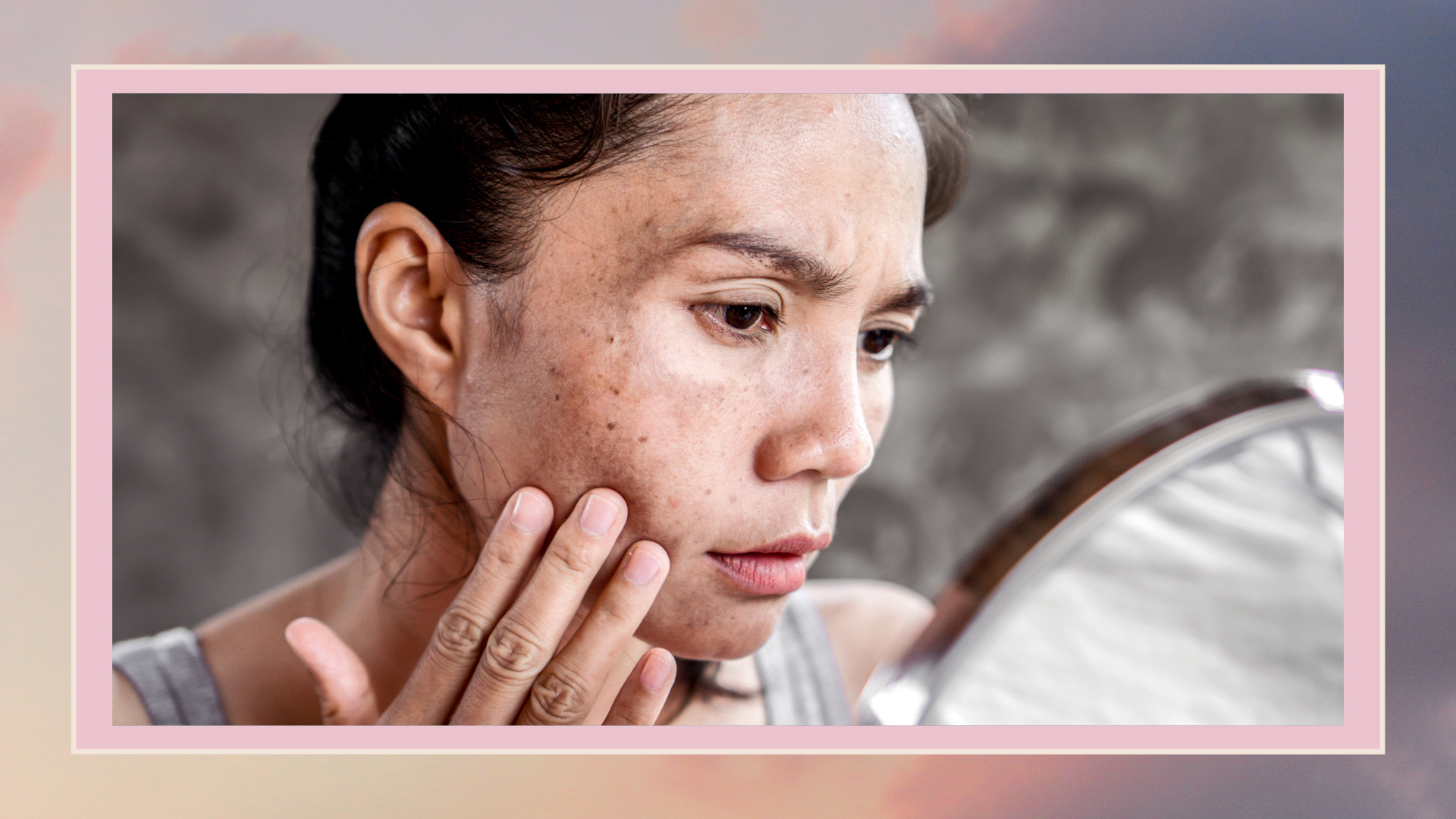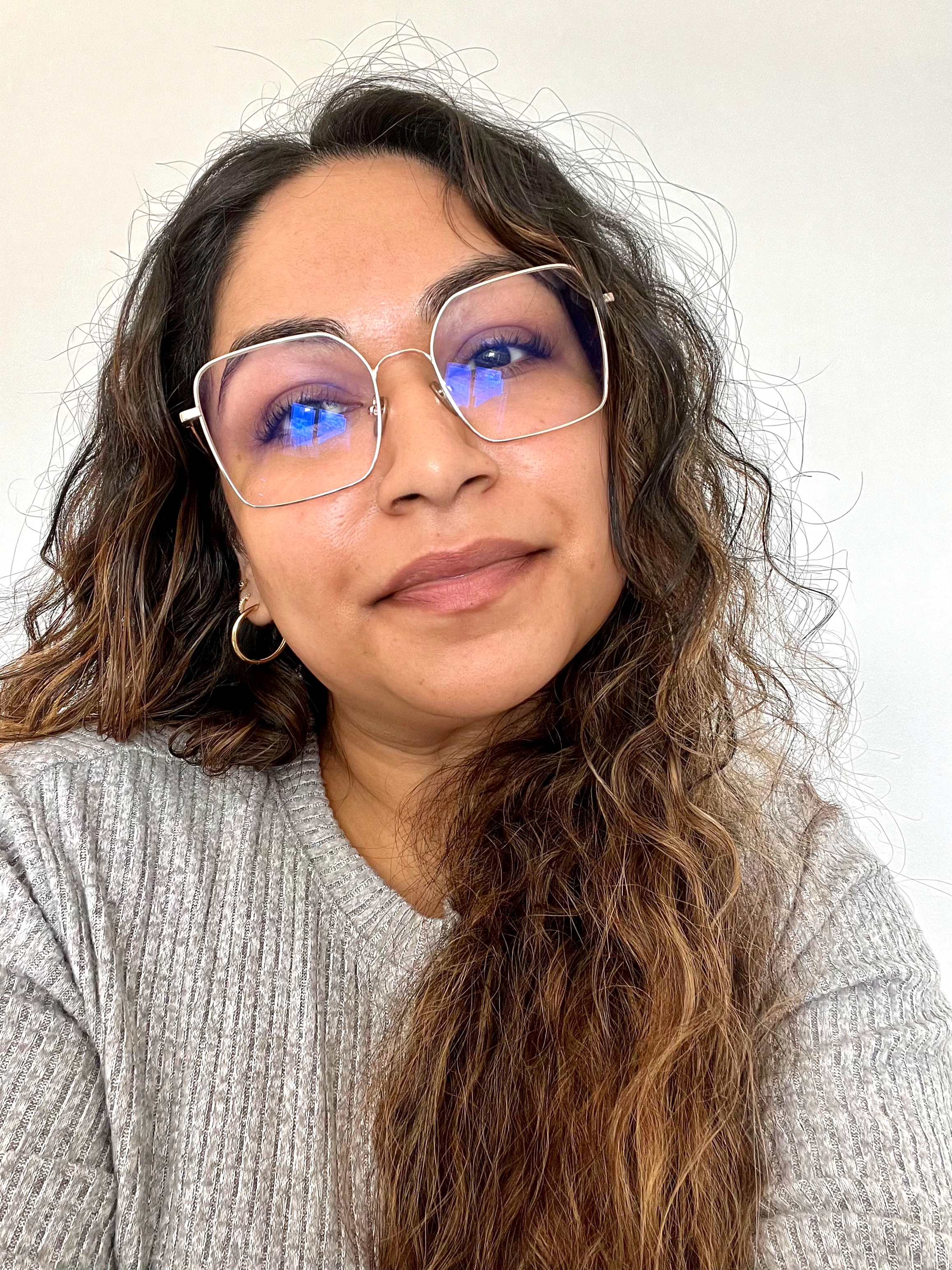At-home IPL for dark spots—do experts say it's safe to try?
Skincare experts point out the risks of using at-home IPL for dark spots. Here’s what to do instead...


Intense pulsed light (IPL) therapy is typically used for hair removal, but it can also be an effective way to reduce skin pigmentation issues. But how does it work and is at-home IPL for dark spots—i.e. the DIY option—a safe solution?
Whether you call them hyperpigmentation, age spots, sun spots, or something else entirely, those dark spots on your complexion can be tough to get rid of. They’re caused by pigment-making cells called melanocytes that live under the surface of your skin. As your skin matures or gets aggravated by sun exposure, those melanocytes get to work, producing melanin that leaves you with the appearance of dark spots.
So how exactly do you get rid of them? While you might have considered using at-home laser hair removal for actual hair removal—it can be effective in erasing dark spots too. We spoke to skincare experts to learn more about how (and how well) intense pulsed light treatments help clear up pigmentation issues, and if it's something you should try at home.
Meet the experts on IPL for dark spots
- Dr. Simone Matousek is a plastic, reconstructive, and cosmetic surgeon based in Sydney, Australia. She has explained the risks of using IPL to treat the skin at-home, the differences between in-clinic and at-home devices, and how dark spots can be treated professionally.
- Dr. Robert Morrell M.D. is the founder and director of the Medical Rejuvenation Centre in Vancouver, Canada, and Di Morelli Skincare. He has also elaborated on how IPL works and the risks of treating the skin through at-home IPL.
- Gia Jurosky is director of influencer marketing and brand strategy at RoseSkinCo, a brand that makes an at-home IPL device. She has explained why these devices should only be used for hair removal, and not to treat the skin, at home.
What is IPL treatment?
“IPL uses light energy at different specific wavelengths to treat many skin concerns,” explains Dr. Robert Morrell, M.D., founder and director of Medical Rejuvenation Centre and Di Morelli Skin Care. "It's used for many therapeutic purposes due to the broad spectrum of wavelengths in IPL treatments,” he adds.
More specifically, IPL can be used to treat pigmentation, rosacea, veins, acne, and as a hair removal treatment, too.
How does IPL help reduce dark spots?
"IPL works to fade dark spots by selectively heating up the brown color with a band of light specific for brown pigment," Dr. Morrell explains. "Typically, these spots will become coffee-like granules that will shed off on the surface of the skin in five to seven days.”
When the light penetrates the skin, the targeted heat zaps only the spots with excess melanin and leaves the rest alone. It works to eliminate the pigmentation that you see toward the surface of your skin, so that you can naturally slough off or exfoliate those cells.
Unfortunately, IPL doesn’t permanently stop or remove melanocytes from producing melanin, so your dark spots will likely return in time. However, a lot of people see significant reductions in visible dark spots following professional treatments.
What are the risks of using IPL at home to treat dark spots?
If getting this treatment in a professional setting works well on dark spots, can we try at-home IPL for dark spots? Using this kind of advanced technology at home sounds like risky business—and, according to the experts we consulted, it is.
“In the last few years, there has been a rapid increase in home light devices that have had very little testing,” says plastic, reconstructive, and cosmetic surgeon Dr. Simone Matousek. “Home IPL devices are unregulated and should not be used for management of pigmentation, or any skin problems,” she advises.
Both doctors note that these DIY devices aren’t really strong enough to produce significant results. In fact, they can actually cause “darkening of pigmentation, as the intensity of home IPL units is too weak,” according to Dr. Morrell. “And, if the intensity is stronger, there is a possibility of burns.”
Zapping your skin with an at-home IPL device might, therefore, actually worsen your unwanted dark spots, by making them even darker.
“Even in the hands of trained medical practitioners, an IPL device can cause side effects,” adds Dr. Matousek. Clinical trials have found that these can include redness, rashes, blistering, swelling, and hypopigmentation—patches of skin lightening—in addition to dark spots. If powerful IPL technology is misused, it can even lead to eye injuries and scarring. Hence the need to leave it to professional hands.
What's the difference between at-home IPL vs professional IPL?
If you’re comparing at-home IPL devices to professional-grade equipment, know the latter will always be safer and more sophisticated.
“The more high-end IPL devices that are operated in medical practices are more tunable, have more precise targeting of skin problems, and are safer in darker skin types. Medical-grade broadband light is one such device, and is more effective and has inbuilt cooling to make it safe,” explains Dr. Matousek.
“At-home devices will likely be too weak to have any real impact, as any manufacturer would be worried about the potential of being sued," she continues. "The machines that will actually have a real impact on skin problems are way more powerful than is safe for any consumer to use."
Moreover, despite how easy at-home IPL for dark spots might sound, managing pigmentation concerns isn’t as simple as zapping your skin a few times. According to Dr. Matousek: “It requires correct topical medication before and after such treatments; some of these can only be prescribed by a doctor.”
So, if an at-home IPL product promises to reduce dark spots in no time—without any medical oversight, topical treatment, or training—it’s probably too good to be true and not to be trusted.
How to use IPL to treat dark spots with a professional
If you want to proceed with an IPL treatment for dark spots, “You should always go see a professional; do not try it at home,” advises Dr. Morrell. The price tag may be higher, but experts advise against trying a DIY device as a way to cut costs on skincare.
"Going to a trained plastic surgeon or dermatologist, having a proper skin assessment and treatment plan, and getting effective, evidence-based therapies is a far better use of time and money than buying a home device," stresses Dr. Matousek. "There's a reason the best lasers and light devices cost hundreds and thousands of dollars; they require precise engineering and regular checkups and tuning to keep your skin safe."
Can I still use at-home IPL for hair removal?
What if you’re already using an at-home IPL device for hair removal? Is that still safe? These at-home devices aren’t suitable for treating skin pigmentation concerns, but they can be useful in reducing body hair (as they're designed to do).
Gia Jurosky, director of influencer marketing and brand strategy at RoseSkinCo, a brand that makes an at-home IPL handset, notes that they are not intended as a treatment for your complexion. “While IPL can be used to treat acne scars, melasma, and other concerns, we recommend the devices for long-term hair removal,” she says. “Someone looking for an IPL skin treatment should consult a physician beforehand.”

Aleesha was Deputy Editor and Beauty & Fashion Editor for My Imperfect Life, where she headed up the beauty, fashion and eCommerce pages. Previously she was Shopping Writer at woman&home and gained an AOP awards nomination after working on their news team. She earned an MA in Magazine Journalism from City, University of London in 2017 and has since worked with a number of brands including, Women's Health, Stylist and Goodto. When she’s not testing all the new beauty & lifestyle products on the market, Aleesha spends her time soaking up the newest bestsellers and Netflix releases, watching everything Marvel, learning about different wines, attempting new languages and traveling as much as she can.